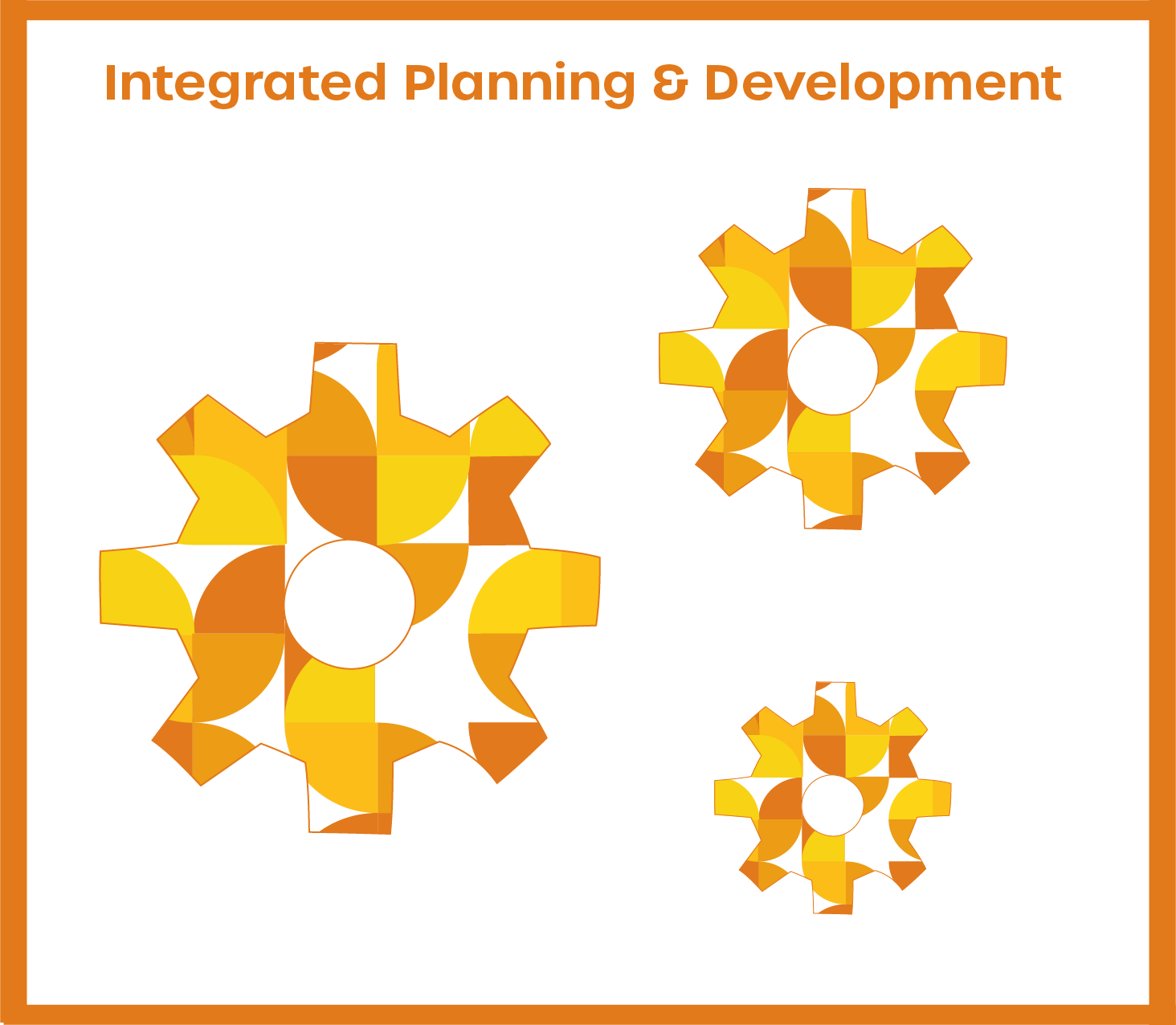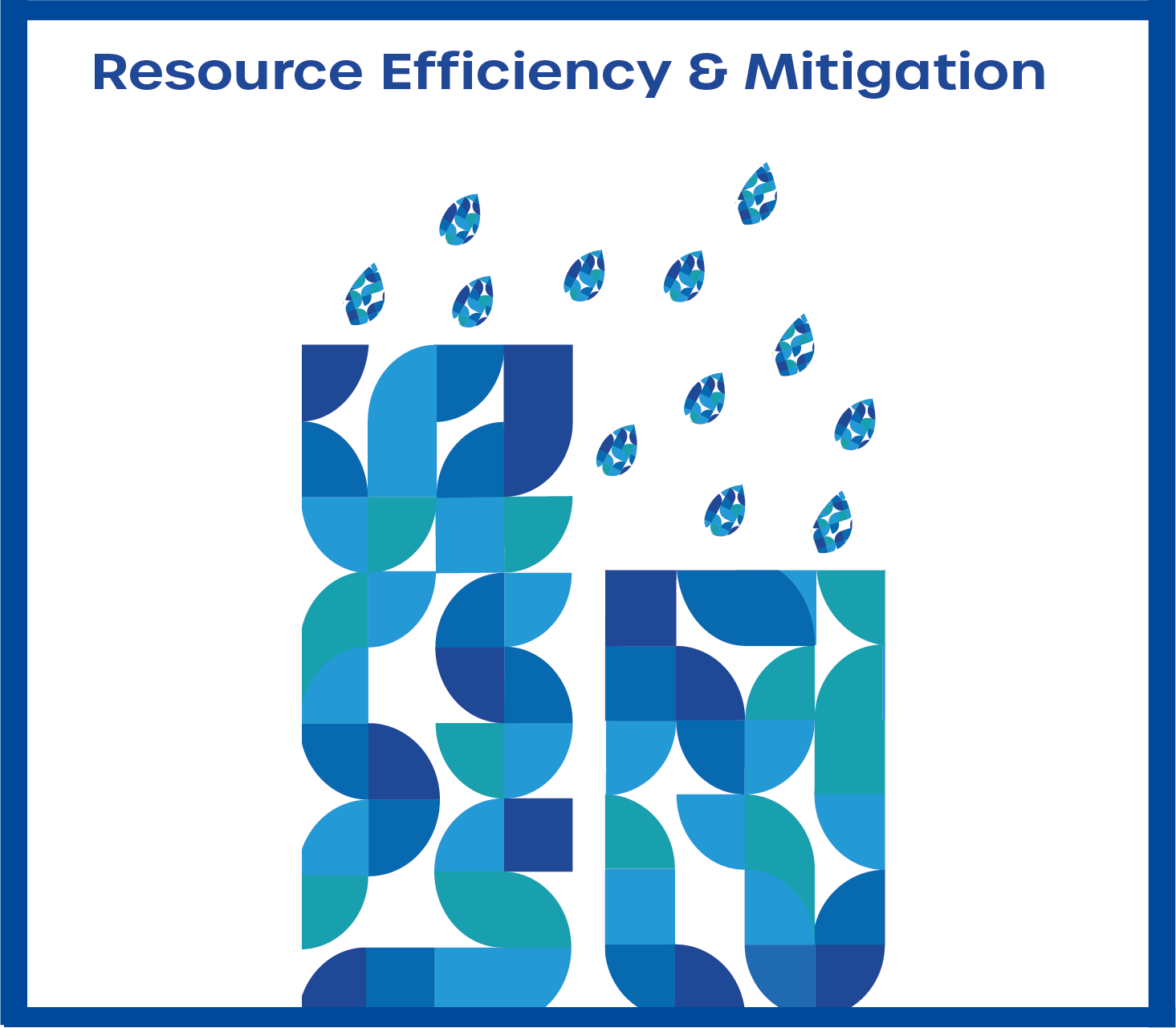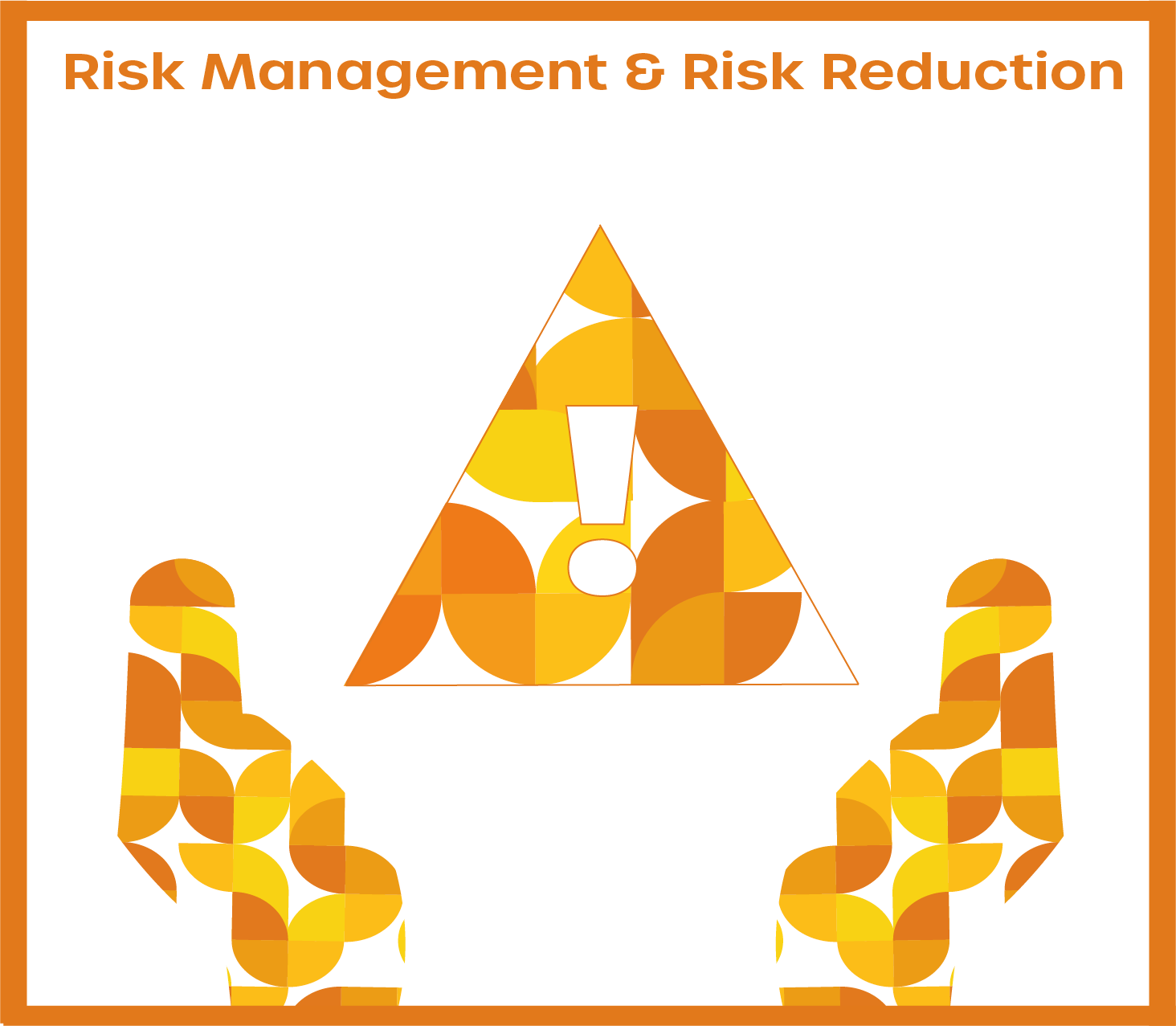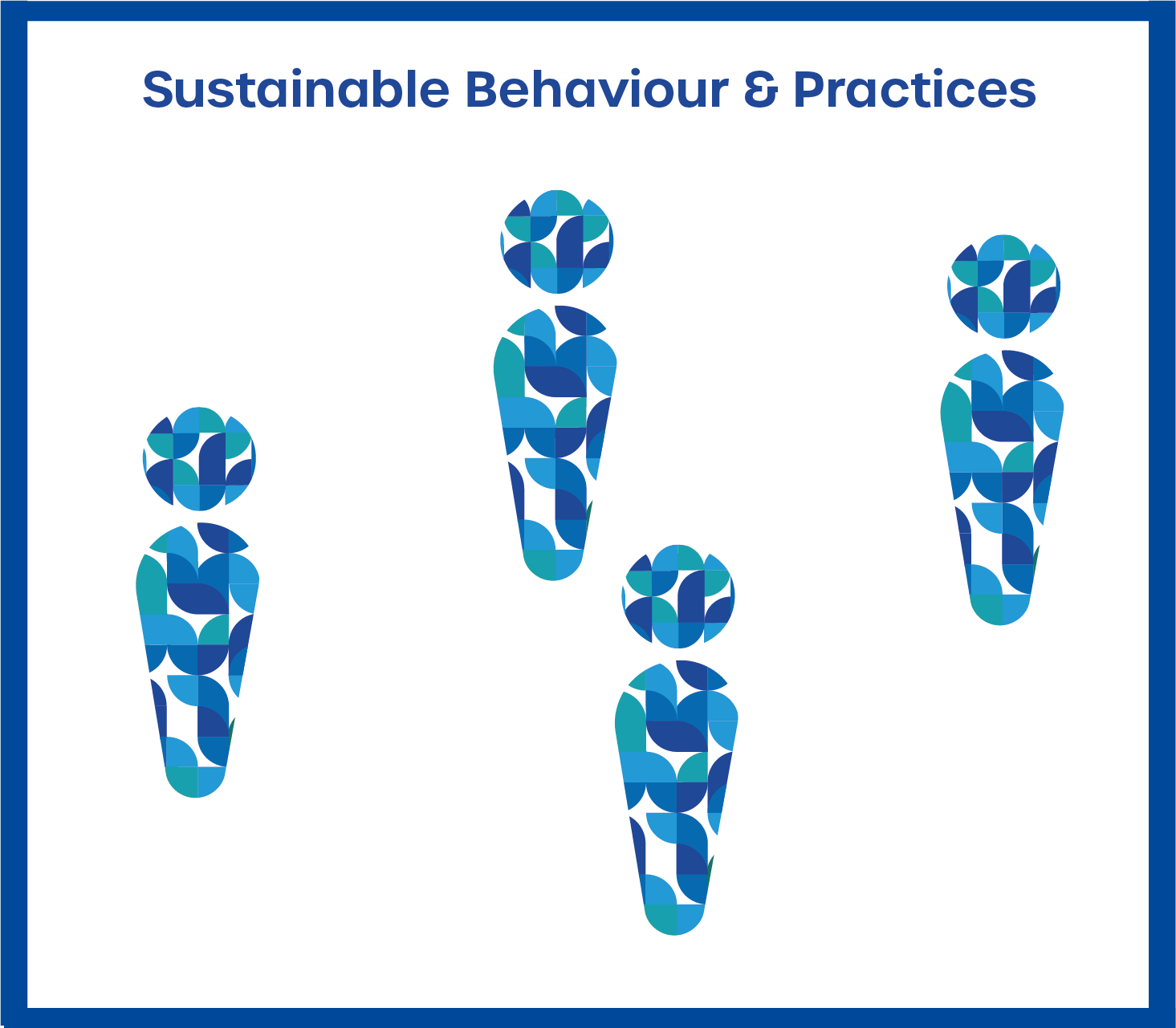Resource efficiency can help cut back greenhouse gas emissions. Moreover, improved resource efficiency and further climate change mitigation can aid the transition-to-sustainability process.
Integrated Planning and Development
Planning can be defined as the process of creating and executing plans. In this respect, development is the act of developing or the state of being developed. To integrate is to combine one thing with another. Integrated Planning and Development is an approach looking at how an organisation can plan across multiple functions, levels, locations, and other natural or artificial divisions. It is closely connected with the complex nature of the cities and regions and necessity of creating sustainable and resilient settlements. Key aspects of Integrated Planning and Development are the increased awareness to action, a collective organizational effort, and the transformative and strengthening character of the process.
Examples of integrated planning and development are object of several projects of the SURE funding priority and can result in concepts for regional green belts and their ecosystem services as in the IMECOGIP Project or designed and visualized scenarios and recommendations and spatial interventions in water-sensitive cities and regions as in the PolyUrbanWaters Project.



